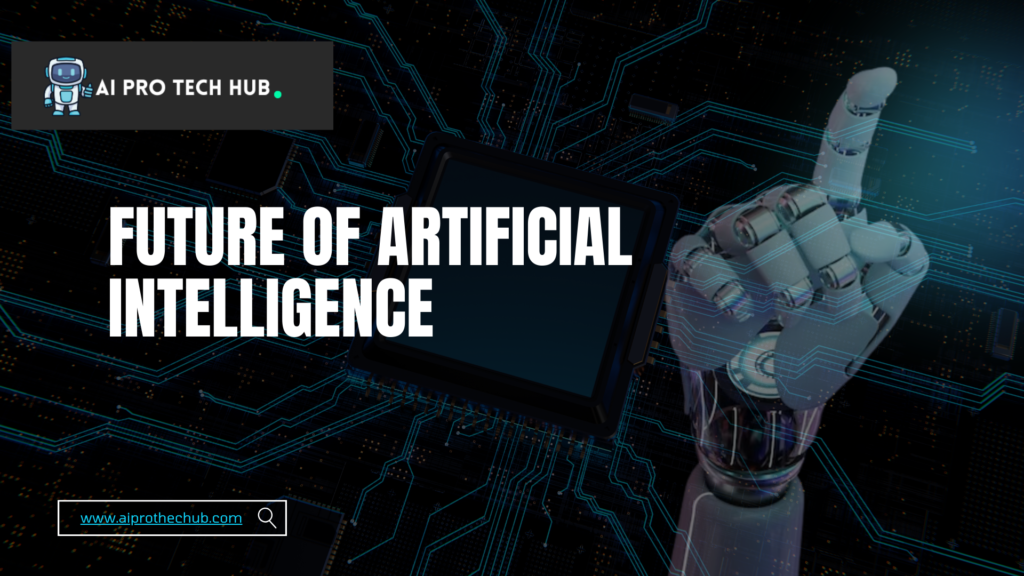Artificial Intelligence (AI) has become essential in the business world, reshaping industries and creating innovation across various sectors. In this article, I will explain what AI is, how businesses are growing, and also know about artificial intelligence business strategies and applications
Let’s Understanding the Artificial intelligence (AI)
Artificial Intelligence refers to the ability of machines to perform tasks using Human Intelligence by giving commands. It cannot perform any task without human or human intelligence command. It also includes understanding natural language, recognizing patterns in data, and making decisions, based on algorithms. Artificial Intelligence is used in several subfields, including Machine Learning (ML), Natural Language Processing (NLP), Computer Vision (CV), and more.
Machine Learning (ML): ML is a subset of Artificial Intelligence that enables systems to learn from data and improve over time without any program. It uses algorithms to analyze large databases, identify patterns, and make predictions or decisions based on analysis.
Natural Language Processing (NLP): NLP focuses on enabling machines to understand, interpret, and generate human language in a meaningful way. Applications include chatbots, language translation, sentiment analysis, and voice recognition.
Computer Vision (CV): CV enables machines to interpret and understand the visual world through digital images or videos. It powers applications such as facial recognition, object detection, autonomous vehicles, and quality inspection in manufacturing.

Applications of AI in Business
Artificial Intelligence is revolutionizing business operations across various domains. Here are some key areas where AI applications are making a significant impact:

- Customer Service and Support:
- Chatbots and Virtual Assistants: AI-powered chatbots are being used to handle customer inquiries, provide 24/7 support, and streamline interactions through natural language processing.
- Personalization: Artificial Intelligence algorithms analyze customer data to personalize recommendations, marketing messages, and user experiences, enhancing customer satisfaction and engagement.
- Sales and Marketing:
- Predictive Analytics: Artificial Intelligence analyzes customer behavior and historical data to predict future trends, optimize pricing strategies, and identify potential leads.
- Content Creation: Artificial Intelligence tools generate content such as articles, reports, and social media posts based on data trends and user preferences.
- Supply Chain and Logistics:
- Demand Forecasting: Artificial Intelligence algorithms predict demand patterns and optimize inventory management to reduce costs and minimize stockouts.
- Route Optimization: AI-powered systems optimize transportation routes, reduce delivery times, and enhance logistics efficiency.
- Finance and Banking:
- Fraud Detection: Artificial Intelligence algorithms analyze transaction data in real time to detect suspicious activities and prevent fraud.
- Risk Assessment: Artificial Intelligence models assess credit risk, automate loan approvals, and optimize investment portfolios based on market trends and risk profiles.
- Healthcare:
- Medical Diagnostics: Artificial Intelligence aids in medical imaging analysis, pathology diagnosis, and early disease detection, improving accuracy and speeding up diagnosis.
- Drug Discovery: Artificial Intelligence accelerates drug discovery processes by analyzing vast amounts of biomedical data and predicting potential drug candidates.
- Human Resources:
- Recruitment and Talent Management: Artificial Intelligence tools automate candidate screening, analyze resumes, and predict candidate suitability based on job requirements and historical data.
- Employee Engagement: AI-powered systems analyze employee sentiment and feedback to improve workplace satisfaction and productivity.
What strategies for Implementing AI in Business?
After implementing Artificial Intelligence successfully requires careful planning, strategic deployment, and consideration of various factors. Here are practical strategies for businesses looking to adopt AI
- Define Clear Objectives: Identify specific business problems or opportunities where AI can provide value. Establish clear goals and metrics to measure the success of AI initiatives.
- Assess Data Readiness: Artificial Intelligence thrives on data. Ensure you have clean, relevant, and sufficient data for training AI models. Data quality and accessibility are critical for the effectiveness of AI applications.
- Choose the Right AI Tools and Platforms: Evaluate Artificial Intelligence solutions based on your business needs, technical capabilities, and budget. Consider whether to build in-house AI capabilities or leverage third-party AI platforms.
- Start Small and Scale: Begin with pilot projects or Proof of Concepts (POCs) to test AI applications in controlled environments. Learn from initial deployments, iterate based on feedback, and gradually scale AI initiatives across the organization.
- Invest in Talent and Training: Artificial Intelligence implementation requires skilled professionals, including data scientists, AI engineers, and domain experts. Invest in training programs to upskill existing employees and attract AI talent.
- Ensure Ethical and Transparent AI Use: Address ethical considerations such as bias in AI algorithms, data privacy, and AI governance. Implement guidelines and policies to ensure responsible AI deployment and mitigate risks.
- Collaborate Across Departments: Foster collaboration between IT, business units, and AI teams to align AI initiatives with strategic business objectives. Ensure stakeholders understand the potential impact of AI on their workflows and processes.
- Monitor Performance and Adapt: Continuously monitor Artificial Intelligence performance, analyze results, and iterate on AI models based on real-world feedback and changing business needs. AI systems should be agile and adaptable to evolving challenges.
What are the Challenges and Considerations in AI-based Business?
While AI offers significant benefits, its adoption poses challenges and considerations for businesses:

- Data Privacy and Security: Artificial Intelligence relies on data, raising concerns about privacy breaches and data security. Businesses must comply with regulations (e.g., GDPR) and implement robust cybersecurity measures.
- Ethical Concerns: Bias in Artificial Intelligence algorithms can lead to unfair outcomes or reinforce societal prejudices. It’s crucial to mitigate bias through ethical AI practices and diversity in data sources.
- Integration Complexity: Integrating AI with existing systems and workflows can be complex and require significant IT resources. Compatibility issues and scalability concerns may arise during deployment.
- Cost and ROI: Implementing Artificial Intelligence involves initial investments in technology, talent, and infrastructure. Businesses must assess the ROI of AI initiatives and justify ongoing investments based on tangible business outcomes.
What is the Future of AI in Business?

Well, Artificial Intelligence is expected to continue transforming business operations, driving innovation, and creating new opportunities across all industries. Advancements in AI technologies such as explainable AI, quantum computing, and edge AI will expand the possibilities for businesses.
As businesses navigate the evolution of Artificial Intelligence, understanding its applications, strategies for implementation and potential challenges will be crucial for leveraging AI effectively to gain a competitive edge, enhance operational efficiency, and deliver superior customer experiences.
Conclusion
Artificial Intelligence is not just a technological trend but a strategic imperative for businesses aiming to thrive in the digital age. By embracing AI responsibly, investing in talent and infrastructure, and aligning AI initiatives with strategic objectives, businesses can harness the full potential of AI to drive growth, innovation, and sustainable success.
